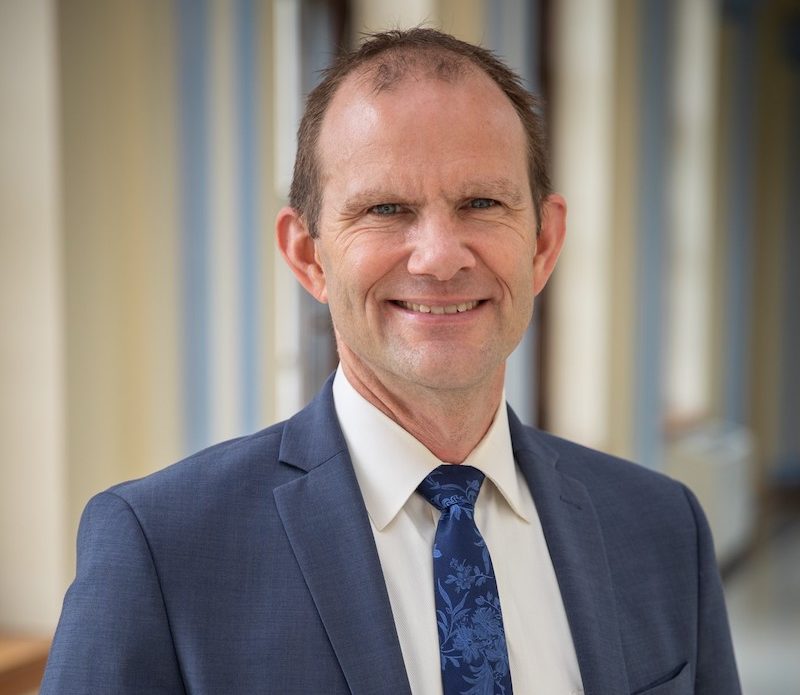During their first year at Immaculata, incoming students are offered First-Year Seminar (FYS) courses that investigate culturally relevant topics and promote intellectual engagement. These courses are designed to be both enjoyable and challenging for new students, offering them the opportunity to explore timely topics through a variety of perspectives. In the fall ’21 semester, Immaculata offered several FYS courses that covered a wide range of topics.
Immaculata History Professor John Hill, Ph.D., offers an analogy for the necessity of FYS courses for incoming students: “The first year of college courses can seem like a cafeteria line. You get ladled out a glob of mashed potatoes (English composition), splat; a dollop of what is purportedly meat in some kind of sauce (history), plop; some kind of green vegetable that your mom, long ago, had learned that you hate (math or biology), thunk. All on separate parts of your plate.” He continues, “All that stuff ends up mixed together in your stomach. Distinct foods (academic disciplines) actually mix together to contribute to sound nutrition (an education). So why not try to demonstrate that right from the get-go?”
Hill’s analysis highlights the importance of introducing relevant and complex topics to incoming freshmen students. FYS courses provide students with the chance to approach a subject through an intellectual and critical lens which will ultimately give them a more thorough understanding of the material and how it applies to their lives.
English Professor Sean Flannery, Ph.D., instructed two FYS classes last semester that navigated issues pertinent to the college student experience today: Social Media Obsessions and Introverts, Anxiety, Pandemic and Opportunity.
In Social Media Obsessions, Flannery aimed to shine a light on how, and to what extent, social media manipulates its users. Coursework for this class included students writing a “Dear John” letter to their cell phones and creating surveys to collect data on their peers’ social media usage. Flannery acknowledges the importance of this topic in the context of the pandemic, which accelerated the use of technology and social media significantly, especially among college students.
He shows his students episodes of “Black Mirror” and “Parks and Recreation” and films like “The Social Dilemma” and “Ingrid Goes West” to illustrate the course topic in popular media. Flannery explains his approach in both classes was “to make it as impactful as possible through visual media.” He adds, “The visual dynamic and the relatability are very important.”
In his course Introverts, Anxiety, Pandemic, and Opportunity, Flannery and his students investigated a rise in anxiety and introversion correlated with COVID-19. The goal of this course was to destigmatize introversion and to promote introverts as viable candidates for leadership opportunities.
Associate Professor of Psychology Erin Kirschmann, Ph.D., taught a course called Psychology in Pop Music, where her class examined different pop songs to find ways in which they relate to psychological concepts. Students engaged in discussions about present themes in pop music and how they relate to introductory psychology. To end the course on a positive note, Kirschmann had students create playlists with the theme of wellness for their final project.
Hoping to raise students’ awareness of the realities of living with a disability, Assistant Education Professor Karen Miscavage, Ed.D., taught an FYS class called “Not Your Atypical Book Club.” Students in this course examined literature, both fiction and nonfiction, in an effort to gain insight into first-hand experiences of living with a disability. Miscavage’s goal was to “facilitate conversations about disabilities” and to “help Immaculata students contribute to creating an inclusive community.”
Guiding his students down the cafeteria line, Hill combines history, sociology, psychology, theology, law, justice and the arts to examine the gruesome topic for his course, Murder. His students investigated paintings, photographs, court cases, statistics, and several other artifacts related to murder. Students also examined classic crime novels, episodes of the television show “The Wire,” and the movie “Dead Man Walking.”
Other recent FYS courses provided students with fundamental knowledge about their physical and mental health as well as financial literacy.
Mark Hughes ’25 says, “My FYS experience was great. Dr. Hill was a very supportive professor which helped me navigate the stress of college courses.”





